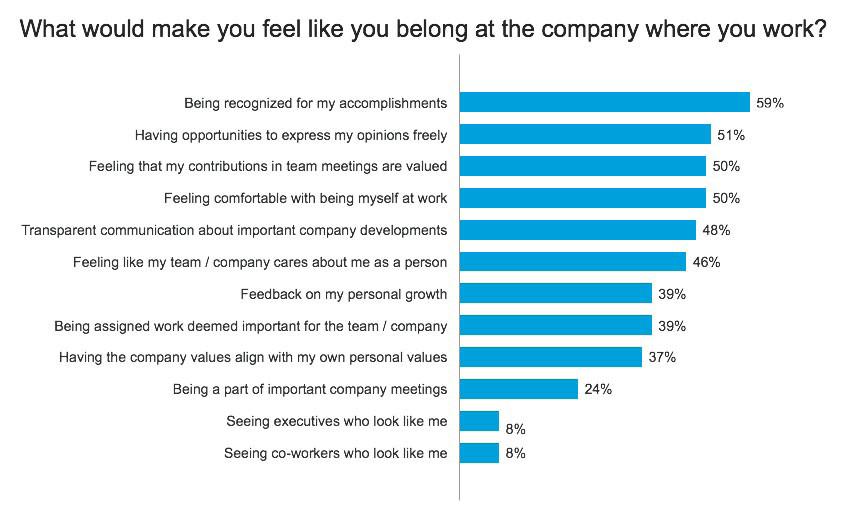
2 minute read
Engagement is about respect and belonging
from VEFF magazine 2 2022
by Veff
Commitment in the workplace is about respect and belonging. It is important to take the pulse of the organization more often.
NINA IVARSEN, CHAIR VEFF
Return-on-investment, ROI, is a well-known formula from business economics. Now managers are looking for similar formulas to follow up on investments in employees.
According to studies conducted by Eric Garton at Bain & Company, engaged employees are three times as productive as less engaged employees. Isn’t it time to look at commitment among employees as a prerequisite for profitability?
DESIRE- AND DUTY-BASED MOTIVATION FOR VALUE CREATION
We believe that value creation and profitability depend on what we call desire-based motivation.
Value creation boils down to whether the employees have a desire-based or duty-based motive. Duty-based value creation is never as profitable as desire-based value creation. No matter how good you are as a manager at defining roles, tasks, routines, and guidelines, you will never be able to get your employees to do “that little bit extra” if there is no genuine desire behind it.
Value creation is very different depending on what the employee does in the business. Nevertheless, there are several common elements that affect the employee’s value creation.
TRUST-BASED MANAGEMENT CREATES INNOVATION
We believe we are finished with employees who want a role description with assigned tasks.
“Diversity is the aggregation of diverse minds for a common purpose.
Inclusion is a critical enabler to effectively manage a diverse work force.
Belonging is a feeling generated out of well-balanced inclusion.” “For an accountant, the expected value creation can lie in always delivering accounts or reports on time. But an accountant who does “the little extra” and discovers connections that enable you to propose alternatives can provide a completely different value creation. Employees who want to do something more than what they are instructed to do will always be more profitable. This is something you see in all industries and occupational groups.”
“There will be a new generation of employees who want to know which goals are to be achieved and which vision they are expected to work towards. Employees often find more efficient and smarter ways to achieve goals than you as a manager. If you instruct with a task-based management style, it only leads to frustration because the employees are not given room to show that they can do more than what is expected.”
We are convinced that trust-based management is the management style that creates the best working environment for commitment.
The home office is here to stay, and we must have confidence in the employee. If we have goals and KPIs, we can more easily find out how to work best. Give employees individual freedom to find out how they want to work and let them show that they can do more than what they are hired for. Profitability then comes as a natural consequence, concludes Nina Ivarsen, Chair VEFF.









